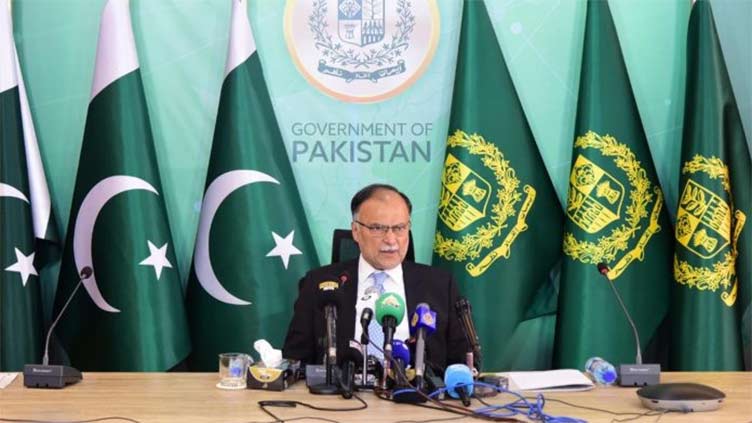Ahsan suggests delinking NFC award from population

Pakistan
Ahsan termed the existing NFC “regressive” as it gives 80 percent weight to population
ISLAMABAD (Dunya News) – Minister for Planning and Development Ahsan Iqbal has hinted at changing the National Fina¬nce Commission (NFC) award mechanism to divide resources among provinces. At present, the NFC award is divided on the basis of population.
Addressing a press conference here on Wednesday, the minister termed the existing NFC “regressive” as it gives 80 percent weight to population and actually “incentivise population growth.”
Ahsan claimed that as the NFC encourages population growth, it has become impossible to hold population census – the 7th census showed over 2.8pc growth making Pakistan the “fastest growing country in the world”.
The minister quoted the example of Sindh and Balochistan saying that “there exist serious fault lines” in the shape of urban-rural and Baloch-Pakhtun divide, respectively.
Every segment wanted to show its higher population to have greater say in matters of employment, finance, representation and so on, he continued.
His comments came on the sidelines of a meeting on updates of the just concluded 7th population census in which the Punjab and Sindh dema¬nded another extension – five and four days, respectively – to complete the re-verification process.
The minister, who heads the monitoring committee on census, directed that evidence-based justification be provided for “verification and rectification of census data”, to reach a decision, according to an official, indicating the census process may take time to conclude despite official announcements for its field work completion on May 15.
Successive governments have not been able to deliver an NFC award for distribution of resources among the centre and federating units after the expiry of previous one in December 2014, though the constitution makes it mandatory to have a fresh NFC every five years. The consensus award of 2009 had been under criticism for transferring too many resources to the provinces, chiefly on the basis of population, and for leaving the centre as a pauper to deal with heavy debt servicing and defense.
Ahsan said there would be no solution to authenticity of census data unless it was delinked from resource distribution. The minister, who was also assisted by chief census commissioner, said the population growth under the new census was about 2.7pc compared to 2.4pc under the sixth national census. “This has very serious ramifications and Pakistan will become a joke,” he warned, adding that India had delinked the population from resource distribution for two decades and made progress.
“No enemy needs to pull us down, this population growth alone will do,” the minister remarked, reiterating that the government would have to separate population from NFC and incentivise provinces to demographic and social improvement.
He said the government was working on three key elements — investment in education, health and population control — to ensure equity among the citizens as part of 5Es-based public. He said five Es — export growth, e-Pakistan, environment, energy and equity — would be centre of next year budget.
He said the government had been heavily focused since it came to power on plugging the gaps on CPEC created by four years of mismanagement, incompetence, bad mouthing and stalling Chinese investment for appeasement of the west and related projects.
Replying to a question, he said ML-1 railway project that remained stalled all these years was in “very advance stages” and terms of financing were being negotiated and the Chinese side was finalising its firms for bidding of the railway project.
He said the $10bn worth of 1872-km Karachi to Peshawar railway project would be undertaken in three phases.

